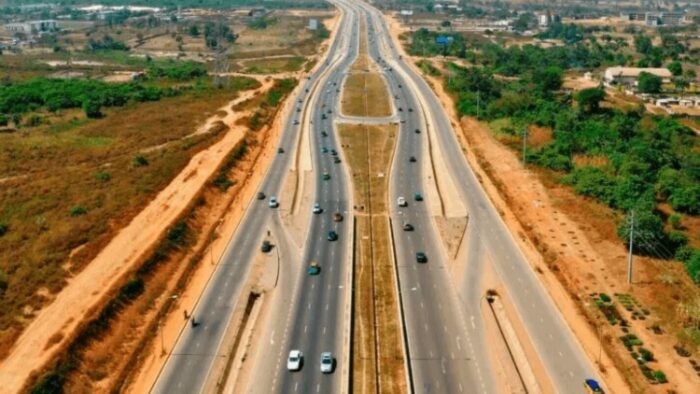Despite continuous proceedings launched by several parties opposing the project, the Federal Government has vowed that it will proceed with building the 700 km Lagos-Calabar Coastal Highway.
At a news briefing on Thursday in Abuja, Minister of Works David Umahi made this statement in response to grave worries about the project’s procurement procedure, which prompted landowners to file lawsuits.
According to the Minister, all legal procedures and requirements were met before construction of the N15.36tn coastal highway even started.
Since the genesis of the highway construction in March 2024, the federal government has been scrutinised by a lot of people.
The construction has caused the demolition of 750 residential houses and business buildings and this has sparked rage amongst the affected the people as they claimed that the compensation paid to them by the government does not match their demolished investments.
The residents contend that the compensation is grossly enough and they demand for a proper review of the pay.
Olanrewaju Ojo, the founder of leisure games, whose property was also affected by the demolition told the press that the 1.3m given to him as compensation was what he could make in a week.
He said, “This is ridiculous! What am I supposed to do with this? I will make this in a week.”
Others who criticised the road procurement procedure are the stakeholders and experts who have maintained that the road project was awarded to the construction company in secrecy.
The coastal highway is designed to link Lagos to Cross River and it passes through the coastal states of Ogun, Ondo, Delta, Edo Bayelsa, Rivers and Akwa Ibom.
Before coming to a head at Cross River, the project is essential for the smooth running of economic activities in the country.
The road is expected to cost N4bn per kilometre, with the government awarding contracts for two sections of less than 100km at a total cost of N2.46tn.
The construction of the road costs about N4bn per kilometre and the government has released a N2.46tn for two sections of the road less than 105-kilometers.
According to Umahi, the life-long project is expected to be completed in a period of 8 years but it is suspected that the timeline would not be feasible giving the Minister’s hint on various causes of delays in the project.
Umahi reaffirmed the Federal Government’s commitment to finishing the project during a press briefing which was held to commemorate his first anniversary in office, claiming that all legal and procedural prerequisites were met.
“We are paying compensation. We are following the corridor’s right of way. We are following the corridor that is legally allowed for the Federal Government,” he stated, while dismissing claims that the project lacked proper authorisation.
“That is the beauty of democracy, and under the guise of democracy we have some fraudulent individuals who want to rip where they did not sow. We have not just one court case, we have over six, but we are equal to the task.
“They want to socket their pipes and that is all that they are doing. We are paying compensation.”
While expressing his uncertainty and confusion about the litigation, Umahi said: “And so, we don’t know what they are taking to court.”
Umahi also states that the Federal Executive Council had accepted the procurement procedure following the Restrictive Procurement Act.
“My Permanent Secretary is a procurement expert, and I have a very good Department of Public Procurement and good directors, but the project was approved by the Federal Executive Council under restrictive procurement,” he said.
He countered the comparisons which which the project got to other projects saying, “I’ve had to run even the cost of the project at N4bn per kilometre. And yet, people still come to say, ‘oh, this number of lanes in Egypt is N1.8bn. And it is 300 kilometres.”
The minister attested to the completion of all environmental social impact evaluations and the project’s inclusion in the 2023 supplemental appropriation.
“We have ESIA certificates on the project. That’s number one. Number two, was the project listed in the appropriation list? The project is in the 2023 supplementary appropriation. The project is ongoing. But the more you take us to court, the more we increase the price of work,” he noted.
The former governor of Ebonyi State addressed those seeking to impede the project through legal methods, saying, “If they want to unduly benefit from the project by going to court, they are wasting their time. I fought many battles as governor of my state. And so, my name is David and I’m not afraid of bad people.”
Umahi said that the government would concentrate on finishing up ongoing projects and making crucial interventions in sectors like roads and infrastructure, and that no new projects would be included in the 2025 budget unless ordered by President Bola Tinubu.
“We need to fix the weak links immediately. If the road is bad, we need to fix it immediately,” Umahi emphasised.
The minister also outlined steps being taken to guarantee value for money in government projects, such as introducing inflow pricing and eliminating the Consumer Price Index from all contracts.
“We are committed to giving the government value for money spent on the projects.”
Umahi also described the ministry’s new four-way project provision, which requires four field employees to be present to oversee project implementation.
This will be supplemented by mission planning, in which communities, users of the roads, and other actors will be included as stakeholders to oversee the work and report any subpar quality. Umahi stated that “engaging communities where the projects traverse is crucial.”
He also acknowledged challenges related to funding, stating, “We have challenges,” and pointed out that the ministry’s allocation of N52bn for capital projects was inadequate for maintaining the 36,000km federal roads network.
Despite these challenges, Umahi has kept his hope alive, launching the second phase of the highway building program under a Public-Private Partnership framework.
“The introduction of the new road infrastructure forecast provides a sustainable source of finance for road projects,” he stated.




